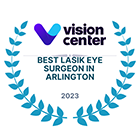
Are you tired of relying on glasses or contact lenses to see clearly? If so, you may be considering LASIK eye surgery or lens implant options to improve your vision. In this article, we will compare these two popular procedures to help you make an informed decision.
LASIK eye surgery is a widely recognized procedure that uses a laser to reshape the cornea and correct vision problems like nearsightedness, farsightedness, and astigmatism. On the other hand, lens implant options involve replacing the natural lens of the eye with an artificial lens, providing a permanent solution for vision correction.
When comparing LASIK and lens implant options, several factors come into play, including cost, recovery time, and potential risks. Additionally, it’s crucial to consider your specific eye condition and overall health before making a choice.
By exploring the similarities and differences between LASIK eye surgery and lens implant options, you can gain a clearer understanding of which procedure might be the right choice for you. So, join us as we dive into the world of vision correction and help you see clearly once and for all.
LASIK Eye Surgery: Procedure and Benefits
LASIK eye surgery is a widely recognized procedure that uses a laser to reshape the cornea and correct vision problems like nearsightedness, farsightedness, and astigmatism. The procedure begins with the surgeon creating a thin flap on the cornea using a microkeratome or a femtosecond laser. This flap is then lifted, and the underlying corneal tissue is reshaped using an excimer laser. Finally, the flap is repositioned, allowing for a quick and relatively painless recovery.
One of the primary benefits of LASIK eye surgery is its ability to provide rapid results. Most patients experience improved vision within 24-48 hours after surgery. Additionally, LASIK offers long-term vision correction, reducing or eliminating the need for glasses or contact lenses altogether.
However, it's important to note that LASIK may not be suitable for everyone. Factors such as thin corneas, dry eye syndrome, or certain medical conditions may disqualify individuals from undergoing the procedure. It's crucial to consult with an experienced eye surgeon to determine if LASIK is a viable option for you.
Lens Implant Options: Types and Advantages
Lens implant options, also known as intraocular lens implants, involve replacing the natural lens of the eye with an artificial lens. There are different types of lens implants available, including monofocal, multifocal, and toric lenses, each catering to specific vision correction needs.
Monofocal lenses provide excellent distance vision, but glasses may still be required for close-up tasks like reading. Multifocal lenses, on the other hand, offer a range of focal points, allowing for clear vision at various distances. Toric lenses are designed to correct astigmatism and can be combined with monofocal or multifocal lenses for enhanced vision correction.
One significant advantage of lens implant options is their permanent nature. Once implanted, these artificial lenses can provide a long-lasting solution for vision correction. Additionally, lens implants can be an excellent choice for individuals who are not suitable candidates for LASIK eye surgery.
However, lens implant options do come with their own considerations. The procedure requires a small incision to remove the natural lens and replace it with the artificial lens, which may lead to a slightly longer recovery time compared to LASIK. It's important to discuss the potential risks and benefits with your eye surgeon to determine the most suitable lens implant option for you.
Factors to Consider When Choosing Between LASIK and Lens Implants
When deciding between LASIK eye surgery and lens implant options, several factors need to be taken into consideration. These factors include the nature of your vision problem, your eye health, lifestyle, and personal preferences.
LASIK may be more suitable for individuals with common refractive errors such as nearsightedness, farsightedness, or astigmatism. It offers a quick recovery time and the possibility of immediate visual improvement. However, it may not be the best option for individuals with thin corneas or dry eye syndrome.
Lens implant options, on the other hand, may be a better choice for individuals with more complex vision issues or those who are not suitable candidates for LASIK. Lens implants can correct a wide range of visual problems, including astigmatism, and provide a permanent solution for vision correction. However, the procedure may require a longer recovery period and may not offer the same immediate results as LASIK.
Ultimately, it is essential to consult with an experienced eye surgeon who can assess your specific needs and recommend the most suitable procedure for you. They will consider factors such as your eye health, lifestyle, and personal preferences to guide you in making an informed decision.
Potential Risks and Complications of LASIK and Lens Implants
Like any surgical procedure, LASIK eye surgery and lens implant options carry potential risks and complications. It's important to be aware of these risks and discuss them with your eye surgeon before proceeding with either procedure.
LASIK eye surgery risks can include dry eyes, glare halos, overcorrection or undercorrection of vision, and, although rare, infection or complications during the procedure. While these side effects are relatively low, it's crucial to have a thorough understanding of them before making a decision.
Lens implant options also come with potential risks, including infection, inflammation, and complications associated with the artificial lens. Additionally, there is a small risk of developing a condition called posterior capsular opacification, which can cause blurry vision and may require a simple laser procedure to correct.
It's important to note that while these risks exist, the majority of LASIK and lens implant patients experience successful outcomes and improved vision. Choosing an experienced eye surgeon and following post-operative care instructions can help minimize the likelihood of complications.
Recovery and Post-Operative Care for LASIK and Lens Implants
Recovery and post-operative care are essential aspects of both LASIK eye surgery and lens implant options. Following the recommended guidelines provided by your eye surgeon can help ensure a smooth recovery and optimize your visual outcome.
After LASIK eye surgery, it's normal to experience some discomfort, dryness, and blurry vision initially. Your eye surgeon may prescribe eye drops or medications to alleviate these symptoms. It's important to avoid rubbing your eyes, swimming, or engaging in strenuous activities during the initial healing period. Most patients can resume normal activities within a few days to a week.
Recovery from lens implant options may take slightly longer compared to laser eye surgery. Your eye surgeon will provide specific instructions on how to care for your eyes, including the use of prescribed eye drops and avoiding activities that may strain the eyes. It's crucial to attend follow-up appointments to monitor your progress and ensure proper healing.
Conclusion: Making an Informed Decision About Vision Correction Options
When considering LASIK eye surgery or lens implant options, it's essential to gather all the necessary information to make an informed decision. By comparing the benefits, risks, costs, and recovery processes, you can gain a clearer understanding of which procedure might be the right choice for you.
LASIK surgery offers rapid results and long-term vision correction for individuals with common refractive errors. Lens implant options provide a permanent solution for vision correction, catering to individuals with more complex vision problems or those who are not suitable candidates for LASIK.
Remember to consult with an experienced eye doctor who can assess your specific needs and recommend the most suitable procedure for you. They will guide you through the decision-making process, ensuring that you have all the information necessary to choose the best vision correction option for your unique situation.
So, say goodbye to glasses and contact lenses and embark on your journey on eye care. Whether you opt for LASIK eye surgery or lens implant options, the goal remains the same – to see the world with clarity and enjoy the freedom of improved vision.











.png)

